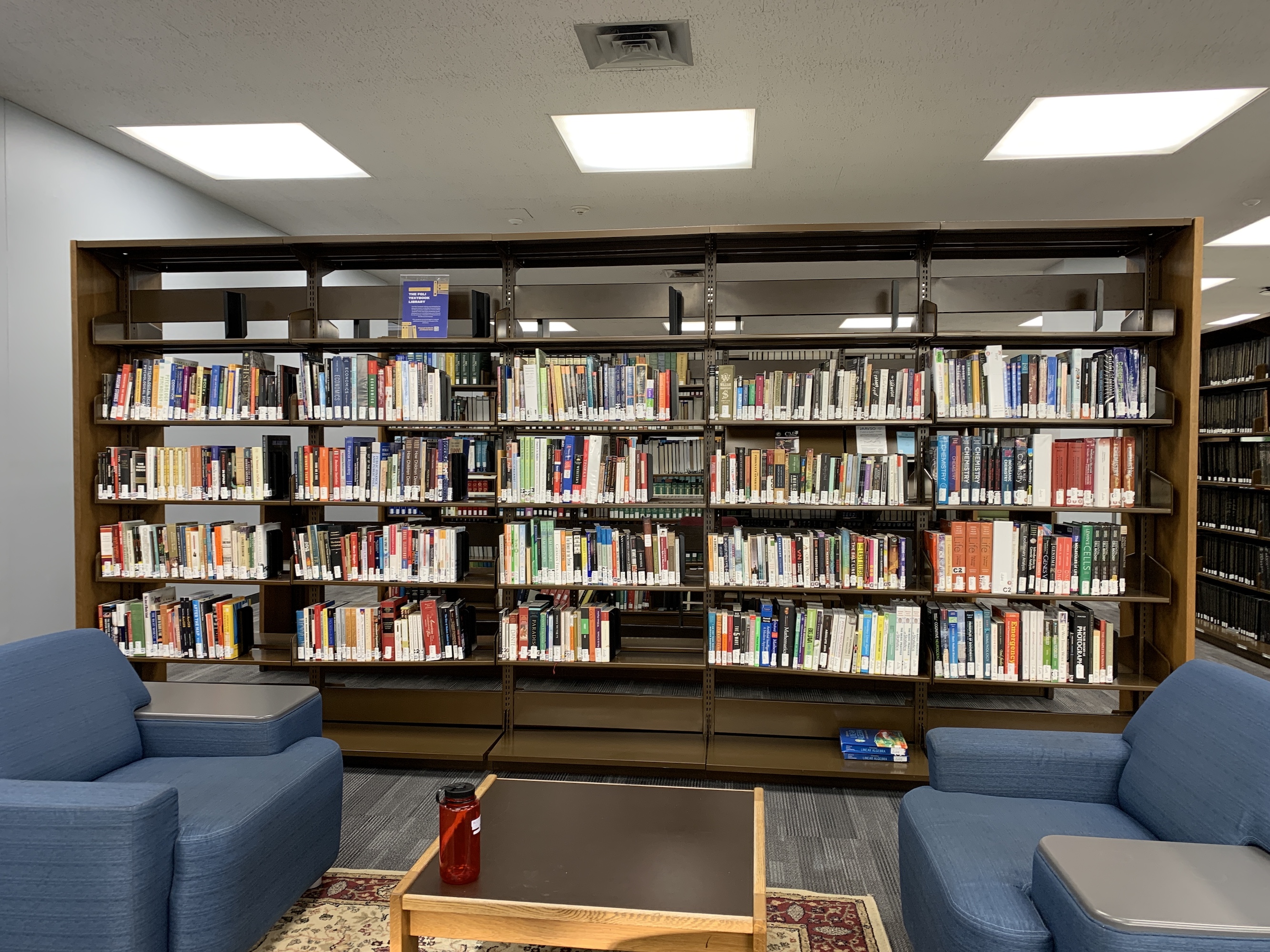
The Resource Center’s First-Generation, Low-Income (FGLI) Textbook Library was relocated to the Exley Science Library in August 2021, and is now part of the University Library catalog. The relocation is due to a lack of available space in the Resource Center.
Students who self-identify as FGLI can check out textbooks from the collection free of charge through the Wesleyan University Library’s catalog. If an item is unavailable or is not yet a part of the collection, FGLI students can request that the Resource Center use its funds to purchase textbooks directly. Due to the FGLI collection’s relationship with the Resource Center, FGLI students are also able to request unique items such as textbooks with one-use course codes. Typically, the Wesleyan University Library only purchases textbooks with the potential for reuse.
“Students typically request books that they need for classes, so they don’t have to pay for them out of pocket because required books are really expensive,” Resource Center Office Manager Wiralpach Nawabutsitthirat ’22 said. “The purpose of this program is to reduce the financial burden on FGLI students [and] allow them to have the same access to resources as more financially secured students.”
According to Caleb T. Winchester University Librarian Andrew White and Associate University Librarian for Academic Services Jill Livingston, Resource Center Director Demetrius Colvin approached the library over the summer to discuss relocating the Resource Center’s FGLI collection.
“We’ve been working on sort of establishing partnerships [with the Resource Center] and attending each other’s events,” White said. “The library has hosted some of the orientation events that the Resource Center has sponsored. Demetrius and I had been talking for a couple of years about his library and how we might partner.”
Before the relocation, the FGLI collection—one of many cultivated by the Resource Center—was contained within bookshelves scattered throughout the Resource Center. According to Livingston, the FGLI collection has grown to 664 items, a size that the Resource Center can no longer accommodate on its own.
“I think we have a few shelves that are still open, but most of them are packed pretty full,” Nawabutsitthirat said. “Students come in to check out the books quite often.”
The relocation of the FGLI collection allows the Wesleyan University Library system to use its own resources to support the Resource Center’s mission. Because the FGLI collection is now a part of the library catalog, University librarians can collect data on checkouts to track which books are in demand and reduce redundancies between the University and Resource Center libraries.
“Moving it up here has allowed us to take advantage of library resources we’re already experts at,” Livingston said.
The FGLI collection’s new physical location comes with benefits of its own. Because more students frequent the Exley Science Library than the Resource Center, Livingston and White hope that the FGLI collection will be more accessible to students who need it.
“It’s more accessible just being in a building that students are more likely to visit more and frequent more often,” Livingston said. “So students can discover this collection now because they see it.”
The relocation has not been without obstacles. According to Nawabutsitthirat, some items in the FGLI collection are still listed in the Resource Center catalog, complicating the tracking of which books are in the Resource Center, checked out, or overdue. Consequently, the Resource Center has to communicate more with the University librarians about checkouts.
Textbooks are lent out on a monthly basis, but students can extend the loan through the entire semester if need be. After the duration of the loan is complete, the textbook is returned to the FGLI collection for future students to access.
If a textbook is damaged or misplaced during the duration of its loan, fees are not charged to the student’s account. Instead, the student must volunteer a portion of their time to organizing and caring for the Resource Center’s library. If the textbook is not returned and the student responsible does not volunteer their time, the student will be suspended from ordering books for a semester.
“The goal of the Resource Center is not to put more financial burden on the student, but to help alleviate financial stressors that come with being in a university like Wesleyan,” Nawabutsitthirat said.
Livingston emphasized that the FGLI Textbook Library’s mission has only become more important as the prices of textbooks have continued to rise.
“The cost of textbooks just keeps escalating. It’s definitely higher than the average wage,” Livingston said. “You don’t want to see students disadvantaged in a course because they’re unable to get materials that maybe other people have.”
Elias Mansell can be reached at emansell@wesleyan.edu.
Jack Johnston can be reached at jjohnston01@wesleyan.edu.



Leave a Reply